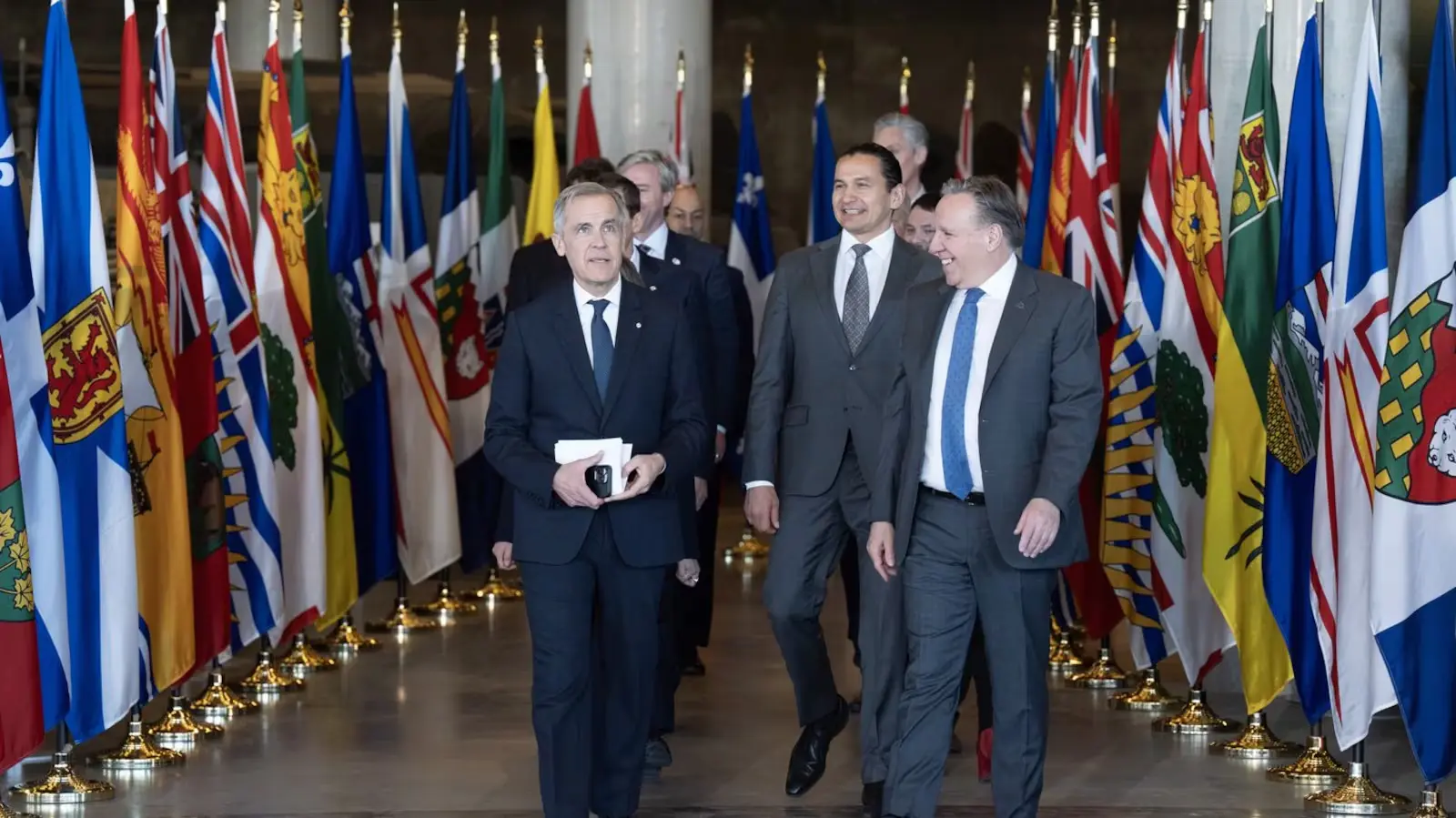Latest Ads
-
Jasmine Jewel
Call
-
Omidan group
Call
-
Amir Madanpour
Call
-
Dimo studio
Call
-
Yorkacademy
Call
-
Maryambagheri
Call
-
Shishlix Restaurant
Call

B.C. pushes back on Alberta’s pipeline pitch as premiers, PM meet in Saskatoon
SASKATON — British Columbia has rejected Alberta Premier Daniel Smith’s proposal to build a bitumen pipeline to the province’s north coast.
The issue is expected to be a major focus of Premier Mark Carney’s meeting with provincial premiers in Saskatoon on Monday, where provincial leaders are reviewing a draft list of projects that will be given special and urgent approval as “national interest” projects.
Smith warned that not including a pipeline would send a bad message to Alberta, a province where separatist sentiment is on the rise.
He said he would like to see a bitumen pipeline built to the port of Prince Rupert on British Columbia’s north coast.
But British Columbia Deputy Premier Nikki Sharma said Monday that there is currently no clear bidder for the project and that her province is focusing on projects that are ready to start construction (Shawl-Reddy).
“While we disagree on some issues, we are looking to find common ground,” she said. “Our focus is on projects that are ready to start construction and that we know can have a significant positive impact on the economy.”
British Columbia Premier David Abe was also absent from the meeting due to a previously scheduled business trip to Asia.
Smith also cited nine federal policies that he said have made companies reluctant to submit pipeline proposals in Canada, including caps on emissions from the oil and gas industry and a ban on tankers off British Columbia’s northern coast. He called on the Carney government to repeal these policies.
“Until we fix these nine bad policies that have destroyed investor confidence, no major investor or developer will come forward with a project,” Smith said.
Prime Minister Carney also promised during the election campaign to reduce the time it takes to approve major projects in the national interest to put Canada on track to become an “energy superpower” and better prepare for the changing U.S. tariffs.
A bill to that effect is reportedly set to be introduced in the House of Commons this week.
“We are redefining our relationship with the United States,” Carney said at the start of the meeting on Monday.
“This meeting is about building a stronger Canadian economy and creating a single Canadian economy.”
However, the full list of projects being considered at the meeting is being kept confidential so as not to send a negative message to the community and the market if some projects are not selected.
Ontario Premier Doug Ford also said at the start of the meeting that the idea of building a pipeline to the northern coast of British Columbia will be raised at the meeting.
He stated:
“I hope we can get oil westward and to Asian markets; but we also need to expand northward and eastward.”
Ford stressed that expanding export markets for Canada is “absolutely critical.”
Another priority for Ford at the meeting is the “Ring of Fire” mining project in northern Ontario.
Saskatchewan Premier Scott Moe also expressed hope that Carney’s efforts to turn Canada into an “energy superpower” can prevent the rise of separatist sentiment in the west of the country. But he said it requires a change in the regulatory environment.
“Policies are important, and in Saskatchewan over the past decade and a half, the big mining investments have been the result of those policies,” Moe said. So there needs to be some policy change.”
New Brunswick Premier Susan Holt also believes Smith’s proposal to accelerate the pipeline is in line with Carney’s agenda.
“I think that’s exactly what the premier is talking about; national-scale projects that will make us an energy superpower and provide the necessary commercial infrastructure,” she said.
“In eastern Canada and New Brunswick, we’re familiar with this because we want to develop our electricity infrastructure so that we can connect to Nova Scotia, Prince Edward Island, Quebec and the United States,” she continued.
Quebec Premier François Legault, who has previously opposed pipeline projects, said any new project would need to be carefully examined from both an economic and environmental perspective.
Legault said:
“We have to look at the economic impact on Quebec and the environmental impact. If a project goes through Quebec, we will look at it.”
Asked about Smith’s demands, he said he was invited to the meeting by Carney, not Smith, and that he had not seen any specific proposals for the pipeline project.
Given the differences of opinion among the 13 provincial premiers, achieving Carney’s vision of building a “single Canadian economy” will require compromise.
Northwest Territories Premier R.J. Simpson said that despite the diversity of demands at the meeting, not all premiers will get everything they want.
“But there is a lot of opportunity. There are a lot of projects in Canada; “Some start now, some in the future.”
Another major topic of discussion at the meeting was the removal of interprovincial trade barriers that could make it easier to buy Canadian-made goods across the country.
Many provinces, including Quebec and Ontario, have entered the meeting with bills that would remove some of these long-standing barriers.
At the start of the meeting, reporters and television cameras were allowed to capture the opening moments.
Doug Ford greets Danielle Smith as he arrives
Suggested Content
Latest Blog
Login first to rate.
Express your opinion
Login first to submit a comment.
No comments yet.


































